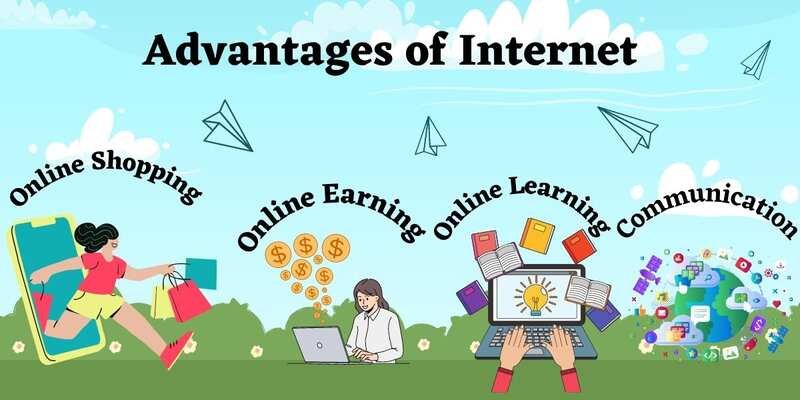The internet has become an integral part of our daily lives, offering a myriad of benefits but also presenting some notable challenges. While it connects us, provides vast information, and offers unprecedented convenience, it also comes with pitfalls like privacy concerns, misinformation, and digital addiction. In this blog, we explore both the advantages and disadvantages of the internet, providing a balanced view of its impact on our world.

Pros of the Internet
1. Global Connectivity
The internet has revolutionized global communication, enabling people from different parts of the world to connect effortlessly. Whether through social media, email, or video calls, maintaining personal and professional relationships across vast distances has never been easier.
2. Access to Information
With the internet, we have access to an unparalleled repository of information. Educational resources, research papers, news, and tutorials are just a click away, making learning and staying informed more accessible than ever before.
3. E-Commerce and Online Services
The convenience of shopping online and accessing various services has transformed consumer behavior. E-commerce platforms allow us to purchase goods, book services, and manage finances from the comfort of our homes, often with better prices and more variety.
4. Entertainment and Media
The internet has democratized entertainment, providing a platform for streaming movies, music, and other forms of media. Platforms like YouTube, Netflix, and Spotify offer endless entertainment options, while social media and blogs enable content creators to reach global audiences.
5. Remote Work and Collaboration
The ability to work remotely has been one of the internet’s most significant contributions, especially highlighted during the COVID-19 pandemic. Tools for online collaboration, such as cloud storage and video conferencing, have made it possible for teams to work together efficiently from different locations.
6. Innovation and Entrepreneurship
The internet has lowered the barriers to entry for aspiring entrepreneurs. Online platforms and digital marketing have made it easier to start and grow a business, reaching a global market without the need for significant upfront investment.
7. Healthcare and Telemedicine
Telemedicine has made healthcare more accessible, allowing patients to consult with doctors remotely. The internet also provides access to valuable health information and online support communities, aiding in the management of various health conditions.

Cons of the Internet
1. Privacy Concerns
With the increasing amount of personal information shared online, privacy has become a major concern. Data breaches, identity theft, and surveillance have raised alarms about how our information is collected, stored, and used by companies and governments.
2. Misinformation and Fake News
The internet is rife with misinformation and fake news, which can spread rapidly and influence public opinion. The ease with which false information can be disseminated poses a significant challenge to maintaining informed and educated societies.
3. Digital Addiction
The addictive nature of the internet, particularly social media and gaming, can lead to excessive screen time. This addiction can negatively impact mental health, leading to issues such as anxiety, depression, and decreased productivity.
4. Cybersecurity Threats
Cybersecurity is a growing concern, with threats like hacking, phishing, and malware becoming more sophisticated. These threats can compromise personal information, financial data, and even national security.
5. Social Isolation
Ironically, while the internet connects us, it can also lead to social isolation. Over-reliance on digital communication can reduce face-to-face interactions, affecting social skills and relationships.
6. Economic Disparities
Access to the internet is not universal, leading to a digital divide. Those without reliable internet access are at a significant disadvantage, missing out on educational, professional, and social opportunities.
7. Impact on Mental Health
The constant bombardment of information and the pressure to maintain an online presence can take a toll on mental health. Issues such as cyberbullying, comparison culture, and the need for validation through social media can contribute to stress and anxiety.
